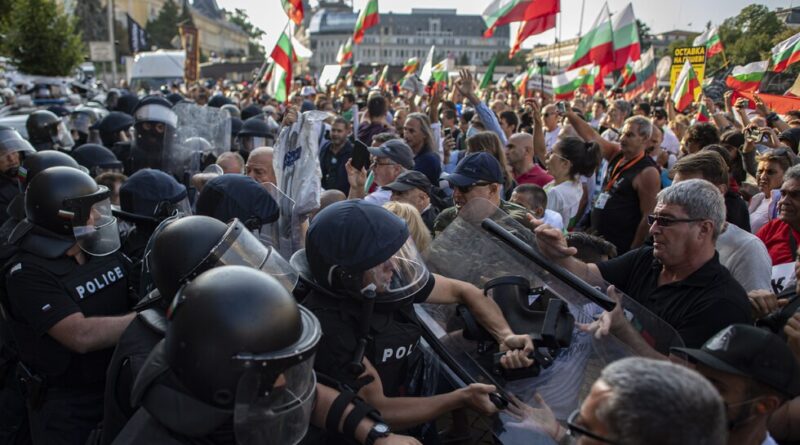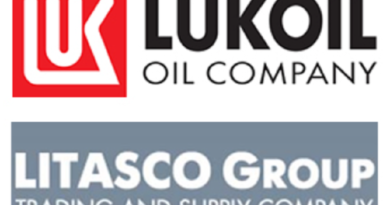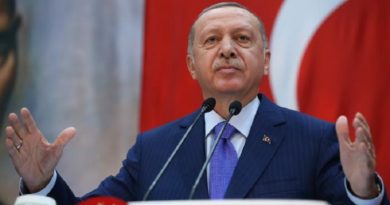Taming the Untamed: Autocracy, Oligarchy, and Bulgaria’s European Crossroads
If one phenomenon unites Southeastern Europe, it’s the protests against autocratic regimes. The more authoritarian the government, the fiercer the resistance. Across these struggles, European institutions—namely the European Commission (EC) and the European Parliament (EP)—play a dual, often contradictory role, stoking Euroscepticism in Eastern Europe, the Western Balkans, and Turkey. In Bulgaria, for instance, neither the EC nor the broader EU is viewed as an impartial arbiter or steadfast guardian of political integrity. Instead, a pervasive belief holds that European and national bureaucracies have woven durable webs of collaboration, channeling political expediency and mutual favor-trading. The European Commission, run by commissioners appointed by national governments, increasingly shies away from confronting or curbing these governments’ excesses. The prolonged effort to restrain Viktor Orbán’s opportunism in Hungary stands as a stark testament to this reluctance.
A faint glimmer of hope emerges from the European Public Prosecutor’s Office (EPPO), which has recently sought to indict former Energy Minister Vladimir Malinov, a central figure in Bulgaria’s political-oligarchic elite. Malinov has masterminded vast corruption schemes in the energy sector, binding Bulgaria to Russian energy interests for decades. Yet caution must temper any optimism—any case must wend through Bulgaria’s courts, where deep-rooted corruption frequently strangles justice.
Support Independent Analysis
Help us keep delivering free, unbiased, and in-depth insights by supporting our work. Your donation ensures we stay independent, transparent, and accessible to all. Join us in preserving thoughtful analysis—donate today!
The silence or passivity of European institutions regarding Trump’s autocratic drive boosting authoritarianism and corruption in the region is widely read as tacit endorsement—or at least tolerance—of figures like Viktor Orbán in Hungary, Aleksandar Vučić in Serbia, Hristijan Mickoski in North Macedonia, and Recep Tayyip Erdoğan in Turkey. These autocrats see US policies, real or imagined, as a carte blanche to quash dissent and protests with ruthless police force. Together, they forge a coalition with a gravitational center potent enough to pull the region from Europe’s political mainstream. This drift is not limited to non-EU states; it resonates within member countries like Bulgaria as well. There, former Prime Minister Boyko Borissov and Delyan Peevski, who style themselves as custodians of Euro-Atlantic values and a strongmen in Bulgarian politics, have increased police and secret service salaries by up to 70 percent in a single year. This move anticipates protests sparked by new heights of public fund embezzlement and attacks on public institutions. Neither the EC nor the EP, where partisan allegiance often eclipses principled resolve, bother to note and mount a worthy reaction.
Consider the EC’s response—or lack thereof—to the Bulgarian Constitutional Court’s election ruling. Rather than asserting a clear stance on democratic standards and the rule of law, the Commission opts for silence, cementing perceptions of inertia. Pro-Russian factions, among others, seize on this as proof of complicity. Such conduct is no anomaly; it reflects a broader pattern within European institutions, favoring self-interest over democratic ideals, moral clarity, and justice. The result is predictable: growing disillusionment among citizens who see the EC and EU not as champions of their rights but as quiet enablers of national corruption, so long as it spares the Union’s framework. Autocracy, meanwhile, gathers strength, weaving cross-border alliances that channel Russia’s infiltration and destabilization of the EU. Orbán’s power derives not merely from his deeds but from the EU’s failure to blunt the corrosive sway of his example.
The Lack of European Sanction Mechanisms
A glaring obstacle to fighting corruption within the EU is the absence of a unified sanction mechanism akin to the U.S. Magnitsky Act, which targets corrupt actors and human rights violators regardless of nationality or locale. Though its vigor has dimmed under President Trump, the UK’s version persists, highlighting the need for a European counterpart. In the EU, enforcing sanctions against Russia—or penalizing their breach—remains a national option, contingent on each member state’s political will and institutional vigor.
In Bulgaria, enacting a Magnitsky-style law feels fanciful amid the current political climate. Corruption runs deep, and the elites who would face such measures hold sway enough to thwart reform. An impotent judiciary and flagging political resolve compound the problem. Thus, even when the U.S. levies Magnitsky sanctions on figures like Delyan Peevski, the shadowy kingpin of Bulgaria’s political underworld, local authorities muster only silence or feeble gestures, laying bare the chasm between external pressure and internal paralysis.
Bulgaria’s Mafia or Mafia’s Bulgaria
Since Russia’s invasion of Ukraine and the ensuing EU sanctions, Bulgaria has become a linchpin for their evasion. As Europe’s sole conduit for Russian pipe gas, it binds Russia-friendly autocrats—from Erdoğan to Orbán—in mutual interest and Russian energy alliance. Beyond gas, this geopolitical dance sustains smuggling rings, reroutes dual-use goods, and funnels banned exports through third countries, keeping the region at odds with EU and NATO aims. Bulgarian customs, border services, and prosecutors—often complicit or willfully idle—anchor this role, marking the country as a frail link in Europe’s sanctions chain. This erodes not only the EU’s stand against Russian aggression but also Bulgaria’s standing as a trustworthy ally.
With Schengen entry secured and Eurozone accession looming, these stakes sharpen. Bulgaria’s oligarchic-corruption model, entwined with Russian and European organized crime, is poised to exploit surging goods and capital flows, opening new profit streams for autocrats and their networks. Public debate increasingly probes whether criminal underground figures like Hristoforos Amanatidis “Taki” dominate political oligarchs like Delyan Peevski—or the reverse—fueled by the prize of commanding these swelling financial cross-border flows in the wake of Schengen and Euro zone entry. Western intelligence flags these schemes, often in real time, yet Bulgarian institutions dawdle or stand mute. This torpor entrenches a justice system plagued by chronic flaws, swapping European norms of order, legality, and justice for an oligarchic sham of Euro-Atlanticism that estranges citizens and beckons Russian sway. German politicians and state-backed NGOs, among others, worsen this by propping up the hollow Euro-Atlantic veneer of Borissov and Peevski.
European Funds as a Source of Corruption
European funds, intended to modernize nations like Bulgaria, often enrich oligarchic circles instead. Misuse of initiatives like “Regions in Growth” or the Rural Development Programme is well-chronicled yet seldom punished. The European Anti-Fraud Office (OLAF) and the EPPO can probe and recommend sanctions, but enforcement hinges on national judiciaries and law enforcement. In corrupt states, this breeds a vicious loop: EU bodies spotlight problems, but local apathy renders their efforts barren.
Hungary and Bulgaria epitomize how EU funds prop up oligarchic webs over public good. In Hungary, cohesion funds flow to Orbán’s cronies; in Bulgaria, shell firms, inflated costs, and political patronage riddle absorption schemes. The EP may clamor for investigations or reforms, but without EC and European Council support—where national sovereignty holds sway—these pleas ring hollow.
Bulgaria’s Dilemma Entering the Eurozone
As Bulgaria nears the Eurozone, it confronts a stark fork: pursue sweeping reforms to align with European benchmarks or cling to a status quo that emboldens a corrupt elite, magnified by Schengen and Eurozone integration. Entry promises tighter financial oversight and transparency, yet Bulgarian-owned banks balk, dreading stricter scrutiny. They were behind the anti-EZ campaign that managed to sway public opinion in recent months. Without excising political-oligarchic sway, these standards will remain mere window dressing—akin to recent spy scandals, where Western allies unmask Bulgarian citizens as Russian agents, only for officials to shrug until public outrage numbs.
Without reform, the corruption-oligarchy model will deepen, thriving on freer capital flows, market access, and Russian designs to exploit Bulgarian entities for Kremlin ends. This could morph into Bulgaria’s new economic bedrock: peddling EU integration’s perks atop a corrupt scaffold.
Autocracy vs. EU Security Agenda
The EU cannot abide Orbán’s exploitation of his European Council veto. Article 7 proceedings against Hungary, sparked by the EP in 2018, languish in the Council, needing a four-fifths majority to advance. Until then, Orbán chips away at the EU from within, amplifying autocracy’s regional allure.
Beyond Schengen and the Eurozone, EU integration now hinges on military-political security and strategic autonomy, driven by Russia’s aggression and Trump’s MAGA drive. Energy and resource security loom large, with a “coalition of the willing” coalescing—states united against Russian threats via joint defense and intelligence ties. Ukraine is woven into this emerging security fabric, a truth some Bulgarian leaders dodge, risking the nation’s sidelining.
Bulgaria must choose: wield Eurozone integration to uproot corruption and forge a functional state, or sink deeper into an oligarchic mire, an EU member in name alone. The chance for renewal beckons, but without bold reform, corruption will endure—untamed and unyielding.
My worst nightmare is that autocrats might resort to a deeply cynical bargain with the emerging elites of the European Union. In this scenario, they would offer to pair homegrown corruption with polished‘ geopolitical’ rhetoric, superficially aligning with the EU mainstream. Beneath this facade, however, they would persist in delivering unparalleled financial and material support—among all EU nations—to Vladimir Putin, bolstering the Kremlin’s war chest. This insidious tradeoff would undermine the EU’s integrity while quietly fueling Russia’s aggression and restoring its spheres of influence, all under the guise of loyalty to European values.
Ilian Vassilev




